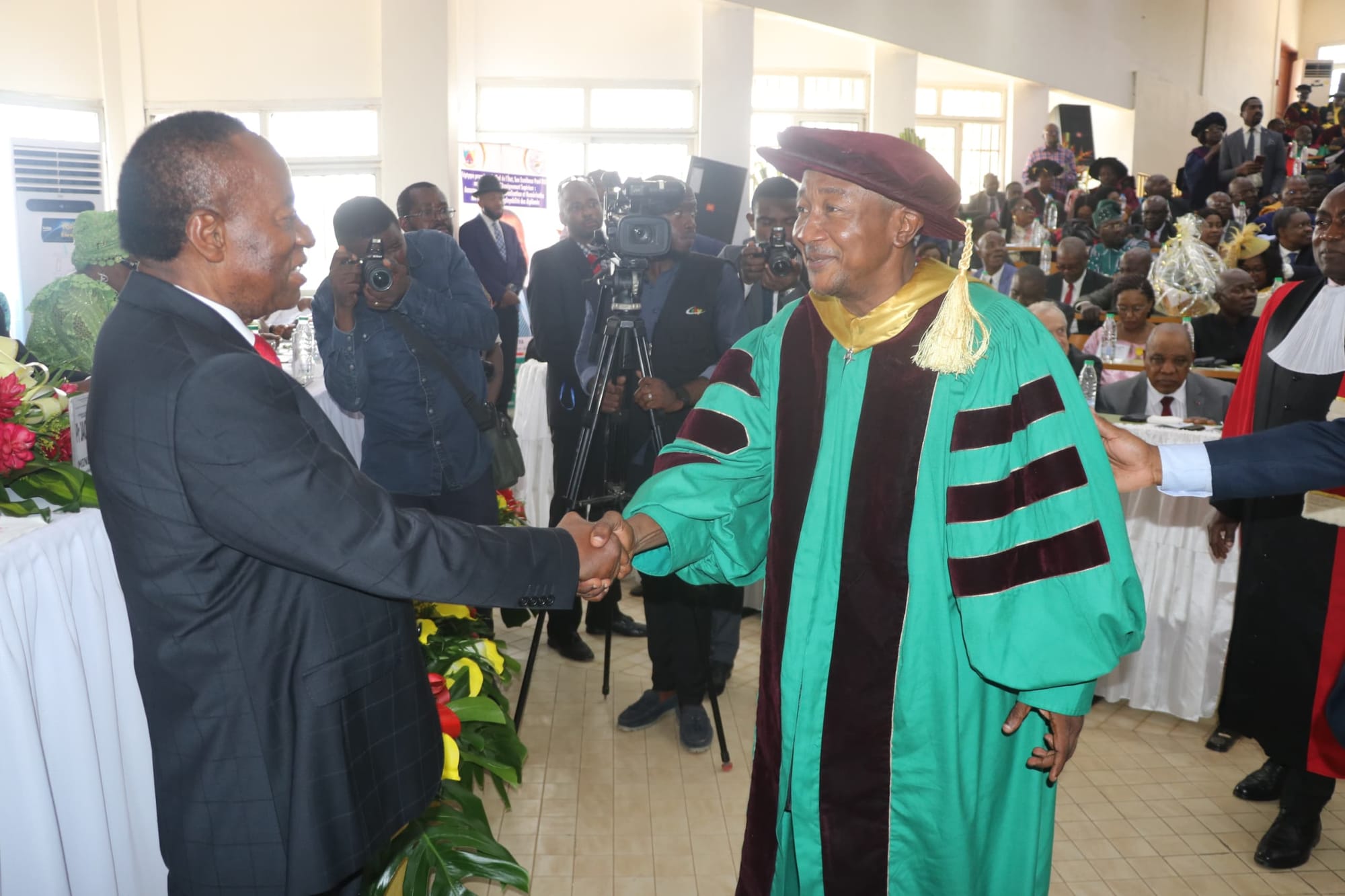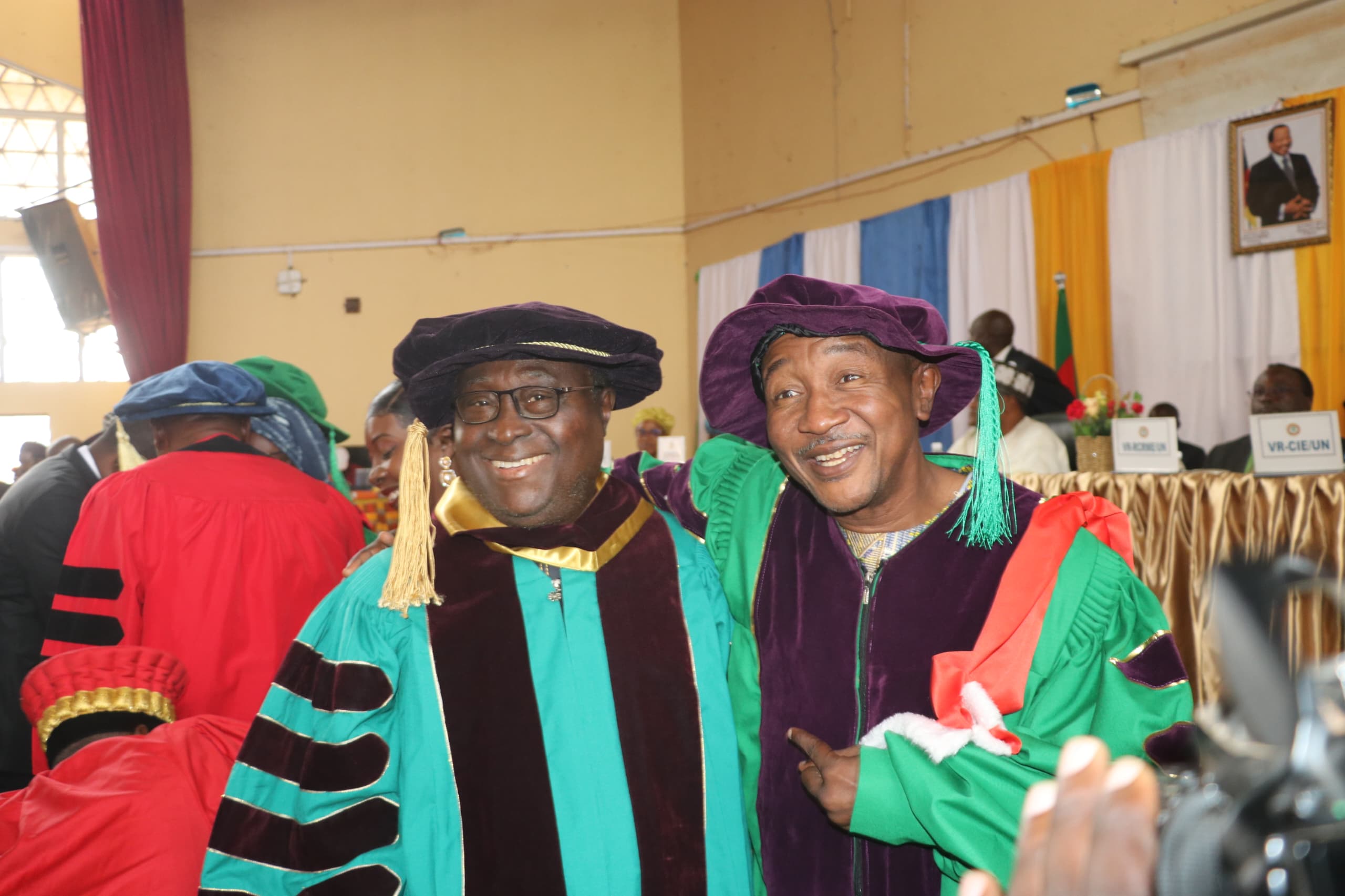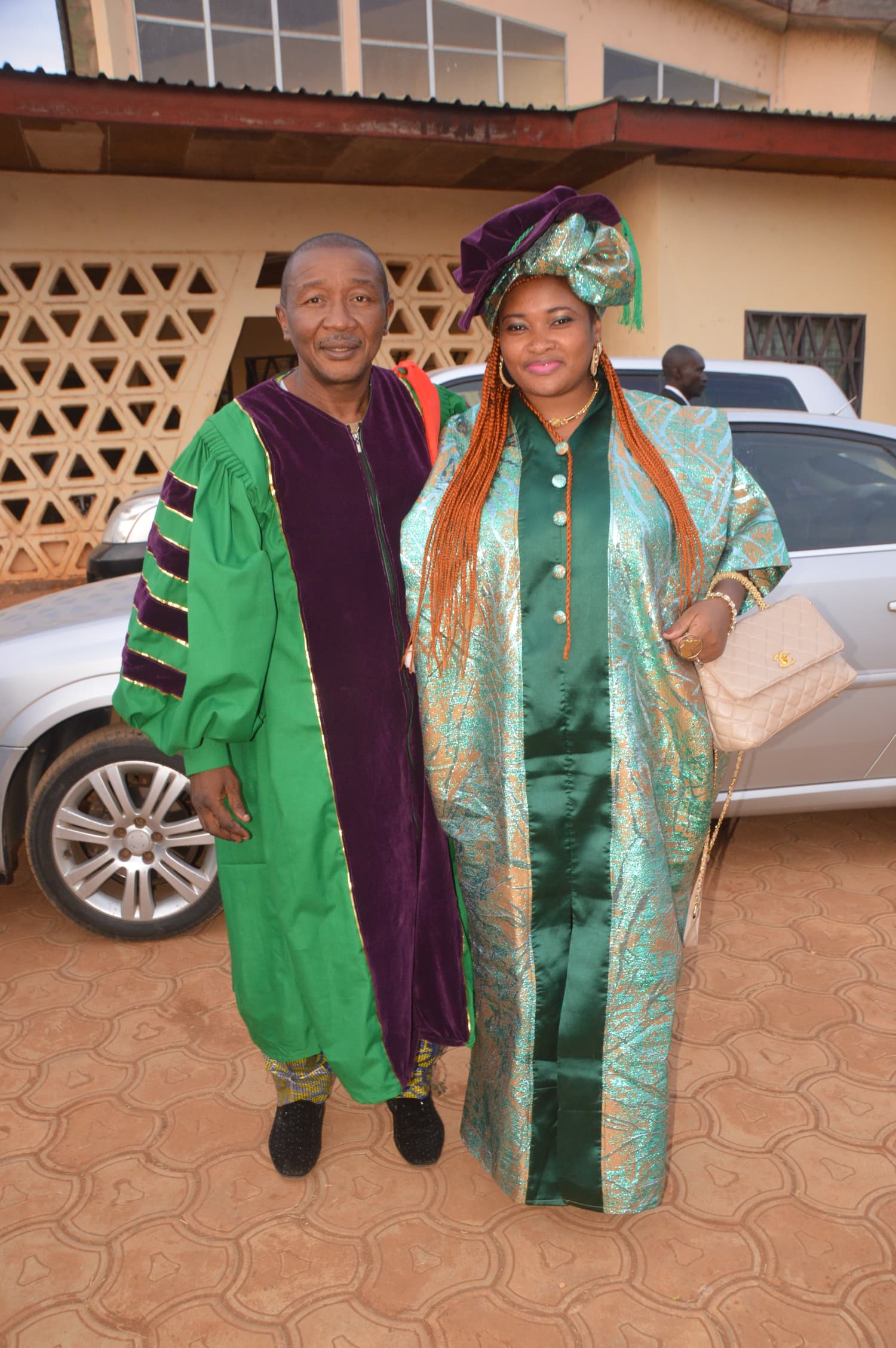Professor (2024)

Summary of the Application File of Desobgo Zangué Steve Carly for Promotion to Full Professor
1. Personal Information and Identification
Desobgo Zangué Steve Carly was born on January 2, 1977, in Douala, Cameroon. A Cameroonian national, he is married and the father of four children. He currently serves as an Associate Professor and researcher at the University Institute of Technology (UIT) of the University of Ngaoundéré. His areas of expertise include food sciences and technology, process engineering, biotechnology, and new product development.
2. Academic Background
Desobgo has followed a consistent and excellent academic path at the University of Ngaoundéré. He earned a University Technology Diploma (DUT) in agro-industrial engineering in 1998, an engineering degree in agricultural and food industries in 2001, and a Master of Science (DEA) in Process Engineering in 2003. He completed his Ph.D. in Process Engineering in 2012, focusing on optimizing hydrolase action on the physicochemical characteristics of sorghum wort. He also completed a postdoctoral fellowship at the University of Johannesburg in South Africa.
3. Professional Experience
With more than two decades of experience, Desobgo has primarily worked in higher education. Starting as a research assistant in 2002, he became a Lecturer in 2012 and an Associate Professor in 2020. He also serves as a consultant and expert for several national and international organizations such as ANOR, APME, UCB, UNIPAC, and KINDAK. His consultancy work focuses on product development, standardization, agricultural waste valorization, and food innovation.
4. Teaching Contributions
Desobgo has taught at various institutions including UIT Ngaoundéré, ENSAI, ENSPD Douala, and ISAGO Obala. He delivers more than 20 course modules related to food processing, applied biochemistry, brewing, experimental design, and process engineering. His expertise is deeply rooted in fermentation processes, beverage technology, fruit and vegetable processing, and industrial enzyme applications.
5. Research and Publications
Academically, Desobgo has published over 40 peer-reviewed journal articles and contributed several chapters to international academic books (Springer, CRC Press, Elsevier). His research focuses on:
- Enzymatic transformation of sorghum and other cereal worts,
- Production of probiotic beverages from dates, soursop, baobab, and guava,
- Valorization of agro-industrial by-products,
- Optimization of processes such as clarification, fermentation, and extraction.
He has presented at major conferences in Cameroon, Belgium, and South Africa, including the American Society of Brewing Chemists’ Winter Symposium.
6. Student Supervision
Desobgo has supervised or co-supervised:
- 5 completed Ph.D. theses, conducted at institutions like the University of Ndjamena (Chad) and ENSAI Ngaoundéré, covering topics such as beverage fermentation, enzymatic extraction, and bio-clarification.
- More than 10 Master’s theses, focused on wine and beer production, juice clarification, bioethanol production, and physicochemical modeling.
- Over 20 engineering projects, centered on brewing process optimization, product formulation, and the valorization of tropical resources (e.g., alcohol-free wines, sorghum-based beers, tropical fruit compotes).
7. University Governance and Responsibilities
Beyond teaching and research, Desobgo has played key roles in academic governance:
- Interim Head of the Department of Food Processing and Quality Control (GACQ),
- Academic coordinator for the Bioengineering program (2009–2011),
- President of the Doctoral and Research Assistants’ Association at the University of Ngaoundéré,
- Member of Ph.D. dissertation defense panels at ENSAI and UIT.
He also actively promotes entrepreneurial innovation within Cameroon's agrifood value chains.
8. Scientific Networking and Expert Roles
Desobgo is actively involved in several scientific societies, including:
- The American Society of Brewing Chemists,
- The Cameroon Biosciences Society.
He serves as an editorial board member or reviewer for numerous international journals, including:
- Journal of Food Stability (Associate Editor),
- Heliyon,
- Journal of Food Processing and Preservation,
- Journal of Food and Bioprocess Technologies,
- African Journal of Science, Technology, Innovation and Development.
Additionally, he provides technical expertise for national committees such as the MINRESI Biotechnology Commission.
9. Awards and Skills
Desobgo has received a Special Distinction from the Rector of the University of Ngaoundéré for academic excellence and was the top student in his Master’s program. He has a strong command of various scientific and statistical software tools (Statistica, Matlab, Design Expert, etc.) and is recognized for his leadership and team collaboration skills. He also engages in sports and artistic activities such as football, drawing, and poetry.
10. Key Publications
Some of his most cited publications include:
- Optimization of phenolic compound extraction,
- Enzymatic clarification of tropical fruit juices (guava, date, soursop),
- Valorization of local resources (raffia, Nkang, tamarind),
- Development of novel alcoholic and non-alcoholic beverages using tropical products.
This dossier highlights the exemplary and multidimensional career of Desobgo Zangué Steve Carly, combining strong scientific expertise, consistent involvement in higher education, and significant contributions to local development through applied research and innovation in the agrifood sector. His profile demonstrates a high potential for promotion to the rank of Full Professor in the field of Process Engineering and Applied Biotechnology.
Résumé du Dossier de Candidature de Desobgo Zangué Steve Carly
1. Informations personnelles et identification
Desobgo Zangué Steve Carly est né le 2 janvier 1977 à Douala, au Cameroun. De nationalité camerounaise, il est marié et père de quatre enfants. Il exerce en tant que Maître de Conférences à l’Institut Universitaire de Technologie (IUT) de l’Université de Ngaoundéré, où il est également chercheur. Sa spécialisation porte sur les sciences et technologies alimentaires, l’ingénierie des procédés, la biotechnologie et le développement de nouveaux produits.
2. Formation académique
Le parcours académique de Desobgo est marqué par l’excellence et la continuité au sein de l’Université de Ngaoundéré. Il obtient un Diplôme Universitaire de Technologie (DUT) en génie agro-industriel (1998), un diplôme d’ingénieur en industries agricoles et alimentaires (2001), puis un DEA en Génie des Procédés (2003). Sa formation culmine avec un doctorat en Génie des Procédés (2012), dans lequel il optimise l’action des hydrolases sur les caractéristiques physico-chimiques du moût de sorgho. Il effectue également un postdoctorat à l’Université de Johannesburg, Afrique du Sud.
3. Expérience professionnelle
Son parcours professionnel s’étend sur plus de deux décennies, principalement dans l’enseignement supérieur. Il débute en 2002 comme assistant à l’ENSAI, devient Chargé de Cours en 2012 puis Maître de Conférences en 2020. Il est également consultant et expert pour plusieurs organismes nationaux et internationaux tels que l’ANOR, l’APME, l’UCB, UNIPAC, et KINDAK. Il a mené des missions sur le développement de produits, la normalisation, la transformation des déchets agricoles, et l’innovation agroalimentaire.
4. Contributions à l’enseignement
Desobgo a enseigné dans diverses institutions telles que l’IUT de Ngaoundéré, l’ENSAI, l’ENSPD de Douala, et l’ISAGO d’Obala. Il assure plus de vingt modules d’enseignement en lien avec la transformation agroalimentaire, la biochimie appliquée, la brasserie, la modélisation expérimentale et l’ingénierie des procédés. Son expertise se concentre fortement sur les procédés de fermentation, la technologie des boissons, la transformation des fruits et légumes, et l’usage des enzymes industrielles.
5. Activités de recherche et publications
Sur le plan scientifique, Desobgo a publié plus de 40 articles dans des revues à comité de lecture et contribué à plusieurs chapitres d’ouvrages collectifs dans des maisons d’édition internationales telles que Springer, CRC Press, et Elsevier. Ses travaux portent principalement sur :
- La transformation enzymatique des moûts de sorgho et autres céréales,
- La production de boissons probiotiques à base de dattes, soursop, baobab, et guava,
- La valorisation des sous-produits agroalimentaires,
- L’optimisation des procédés de clarification, fermentation et extraction.
Il a contribué à des conférences de grande envergure au Cameroun, en Belgique, en Afrique du Sud, et a participé à plusieurs symposiums, notamment celui de la Société Américaine de Chimie de Brassage.
6. Encadrement académique
En tant que directeur ou codirecteur, Desobgo a supervisé :
- 5 thèses de doctorat terminées, dont certaines à l’Université de Ndjamena (Tchad) et l’ENSAI de Ngaoundéré. Les thématiques couvrent la fermentation, la modélisation de procédés, la bio-clarification, ou encore la production d’enzymes.
- Plus d’une dizaine de mémoires de master, sur des thématiques comme la fermentation du vin d’ananas, la production de bières à base de sorgho, ou encore l’extraction assistée par ultrasons.
- Plus de 20 projets d’ingénieurs, centrés sur l’amélioration des procédés de brasserie, la formulation de produits alimentaires et la valorisation de produits tropicaux (ex : compotes de fruits, bières aromatisées, boissons sans alcool).
7. Gouvernance universitaire et responsabilités
En dehors de l’enseignement et de la recherche, Desobgo a joué un rôle actif dans la gouvernance universitaire. Il a assumé des fonctions telles que :
- Chef de Département par intérim du Génie Alimentaire et Contrôle Qualité (GACQ),
- Responsable pédagogique de la mention Bioingénierie niveau 2 (2009–2011),
- Président de l’Association des Moniteurs et Doctorants de l’Université de Ngaoundéré,
- Membre du jury pour des soutenances de thèses à l’ENSAI et à l’IUT.
Il est également impliqué dans la promotion de l’innovation entrepreneuriale dans les chaînes de valeur agroalimentaire au Cameroun.
8. Réseautage scientifique et expertises
Desobgo est membre actif de plusieurs sociétés savantes, notamment :
- American Society of Brewing Chemists,
- Cameroon Biosciences Society.
Il est membre des comités éditoriaux et réviseur scientifique pour plusieurs revues internationales, telles que :
- Journal of Food Stability (rédacteur associé),
- Heliyon,
- Journal of Food Processing and Preservation,
- Journal of Food and Bioprocess Technologies,
- African Journal of Science, Technology, Innovation and Development.
Il est également sollicité pour des expertises techniques au sein de comités comme celui du MINRESI (Commission Biotechnologie du CNDT).
9. Distinctions et compétences
Desobgo a reçu une distinction spéciale du Recteur de l’Université de Ngaoundéré pour l’excellence de ses résultats académiques. Il maîtrise de nombreux logiciels scientifiques et statistiques (Statistica, Matlab, Design Expert, etc.), et possède de solides compétences organisationnelles et sociales.
10. Publications majeures
Certaines de ses publications les plus citées concernent :
- L’optimisation des conditions d’extraction des composés phénoliques,
- L’utilisation des enzymes pour la clarification des jus (goyave, datte, soursop),
- La valorisation des ressources locales (raffia, Nkang, tamarin),
- Le développement de bières et vins innovants à partir de produits tropicaux.
Ce dossier illustre le parcours exemplaire et multidimensionnel de Desobgo Zangué Steve Carly, qui allie une solide expertise scientifique, un engagement soutenu dans l’enseignement supérieur, et une contribution significative au développement local à travers la recherche appliquée et l’innovation agroalimentaire. Son profil témoigne d’un fort potentiel pour accéder au grade de professeur des universités dans le domaine du Génie des Procédés et des Biotechnologies appliquées.




